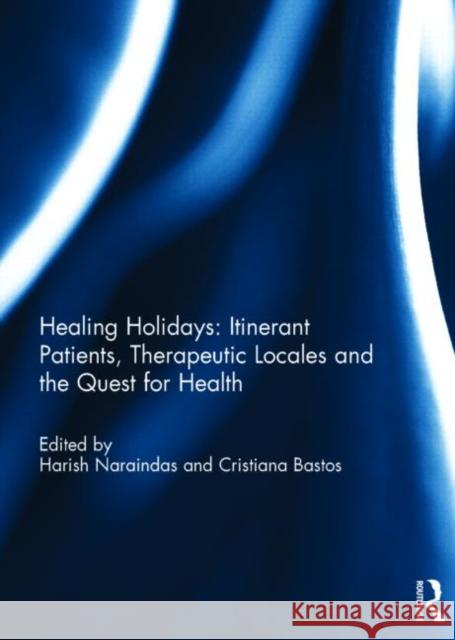Healing Holidays: Itinerant Patients, Therapeutic Locales and the Quest for Health » książka
Healing Holidays: Itinerant Patients, Therapeutic Locales and the Quest for Health
ISBN-13: 9781138806658 / Angielski / Twarda / 2014 / 150 str.
Healing Holidays: Itinerant Patients, Therapeutic Locales and the Quest for Health
ISBN-13: 9781138806658 / Angielski / Twarda / 2014 / 150 str.
(netto: 440,37 VAT: 5%)
Najniższa cena z 30 dni: 453,32
ok. 22 dni roboczych.
Darmowa dostawa!
This volume on medical tourism includes contributions by anthropologists and historians on a variety of health-seeking modes of travel and leisure. It brings together analyses of recent trends of "medical tourism," such as underinsured middle-class Americans traveling to India for surgery, pious Middle Eastern couples seeking assisted reproduction outside their borders, or consumers of the exotic in search of alternative healing, with analyses of the centuries-old Euro-American tradition of traveling to spas. Rather than seeing these two forms of medical travel as being disparate, the book demonstrates that, as noted in the introduction what makes patients itinerant in both the old and new kind of medical travel is either a perceived shortage or constraint at home, or the sense of having reached a particular kind of therapeutic impasse, with the two often so intertwined that it is difficult to tell them apart. The constraint may stem from things as diverse as religious injunctions, legal hurdles, social approbation, or seasonal affliction; and the shortage can range from a lack of privacy, of insurance, technology, competence, or enough therapeutic resources that can address issues and conditions that patients have. If these two intertwined strands are responsible for most medical tourism, then which locales seem to have therapeutic resources are those that are either natural, in the form of water or climate; legal, in the form of a culture that does not stigmatise patients; or technological and professional, in the form of tests, equipment, or expertise, unavailable or affordable at home; or in the form of novel therapeutic possibilities that promise to resolve irresolvable issues .
This book was originally published as a special issue of "Anthropology & Medicine.""











